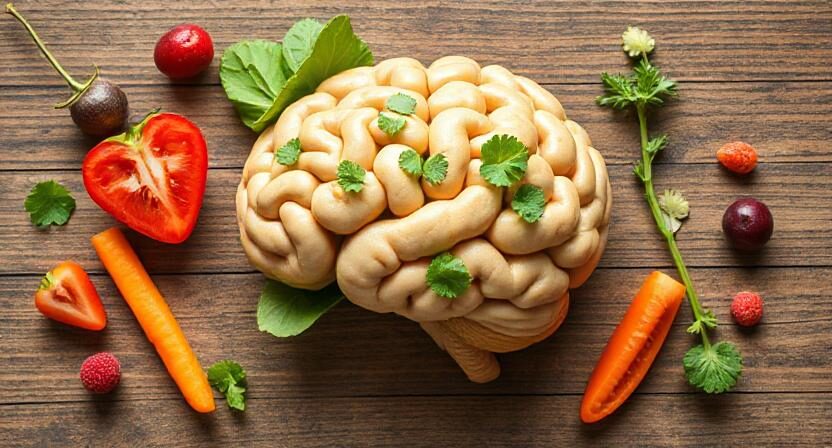Why Tart Cherry Is the…
Blog by Sherry Larson Why Tart Cherry Is the Natural…
Table of Contents
Toggle
Inflammation is the body’s natural protective response to injury or infection. In this acute phase, the process is essential for healing as immune cells rush to the affected area to combat harmful invaders and repair tissue damage. However, when this response lingers beyond its useful purpose, it transforms into a state known as chronic inflammation—a persistent, low-level immune activation that can wreak havoc on the body over time.
When chronic inflammation takes hold, its effects are not confined to one part of the body. Over time, the sustained inflammatory process can extend to the brain and nervous system, a condition referred to as neuroinflammation. Unlike the short-term inflammation that aids in healing, neuroinflammation is a prolonged and subtle state of immune activation that may contribute to:
Over time, neuroinflammation has been associated with conditions such as multiple sclerosis, Alzheimer’s disease, Parkinson’s disease, chronic migraines, and neuropathy. In these disorders, prolonged inflammation disrupts neural function, impairs the transmission of signals between neurons, and damages overall brain health.
The anti-inflammatory diet is a lifestyle approach centered on reducing chronic inflammation and supporting overall health. Its core principles include:
In contrast, foods that promote inflammation—such as processed sugars, refined carbohydrates, trans fats, and additives found in many pre-packaged meals—can trigger or exacerbate the inflammatory processes that damage the brain and nervous system.
Adopting an anti-inflammatory diet offers several advantages for brain and nervous system health:
Scientific studies have increasingly supported the idea that dietary modifications can lead to measurable improvements in cognitive performance, mood, and overall neural well-being. Real-life success stories abound where individuals have reported decreased frequency and intensity of symptoms such as chronic migraines and neuropathic pain after embracing a diet rich in whole, unprocessed foods.
Making a transition to an anti-inflammatory lifestyle can seem daunting, but small, consistent changes can lead to significant benefits. Here are some practical strategies:
A growing body of research underscores the role of diet in managing neuroinflammation. Studies have demonstrated that antioxidants can reduce markers of oxidative stress in the brain, while omega-3 fatty acids have been shown to support cognitive function and mood stability. Alongside scientific evidence, numerous testimonials from individuals who have adopted the anti-inflammatory diet report enhanced mental clarity, reduced symptoms of chronic conditions, and an overall improvement in quality of life.
In today’s fast-paced world, where chronic inflammation has become an all-too-common challenge, embracing an anti-inflammatory diet offers a powerful, proactive approach to safeguarding your brain and nervous system. By choosing foods that heal and protect, you not only work towards mitigating the risks of neurodegenerative conditions but also foster a foundation for long-term cognitive and emotional well-being. Whether you’re looking to alleviate symptoms of an existing condition or simply wishing to optimize your brain health for the future, consider making the anti-inflammatory lifestyle a central part of your journey toward a healthier, more vibrant life.
Take the first step today—explore new recipes, shop for fresh ingredients, and consult with healthcare professionals to tailor an approach that suits your unique needs. Your brain, your mood, and your overall well-being will thank you for it.
Blog by Sherry Larson Berberine: Nature’s Secret Weapon for Blood Sugar, Inflammation & More If you’re looking for…
Blog by Sherry Larson Shilajit: Nature’s Ancient Energy Tonic for Modern Burnout We’ve all felt it—that sluggish, wired-but-tired…
Blog by Sherry Larson Celery Juice: The Gut-Healing, Liver-Loving Morning Ritual You Didn’t Know You Needed If you’ve ever felt…
Blog by Sherry Larson Milk Thistle: The Detox Defender Your Liver Has Been Waiting For Milk thistle might…
Blog by Sherry Larson The Link Between Ultra-Processed Foods and Cancer: What They’re Not Telling You Every day,…
Blog by Sherry Larson Understanding High Cortisol: Signs, Causes, and Natural Ways to Balance It Cortisol, commonly known…
Blog by Sherry Larson The Truth About Red Meat and Health: Why the Real Culprit May Not Be What You…
Blog by Sherry Larson The Hidden Dangers of Diet Cola: What You Need to Know Diet cola has…
Blog by Sherry Larson 14 Ways to Begin Healing Your Gut and Transform Your Health …
copyright © 2025 Anti-Inflammatory Approach. All rights reserved. Unauthorized reproduction, distribution, or use of any content, including text, images, recipes, or other materials on this website, is strictly prohibited without prior written permission. This website’s content is provided for informational purposes only and does not constitute medical or professional advice.